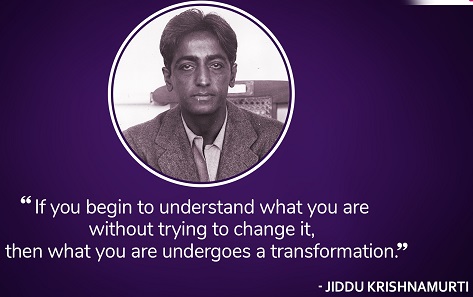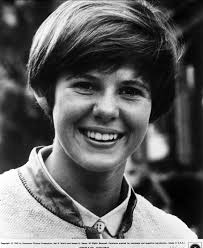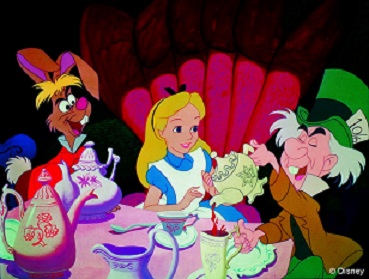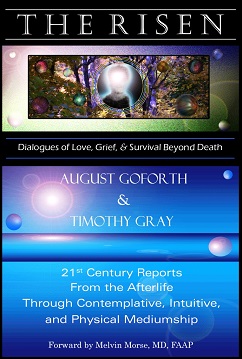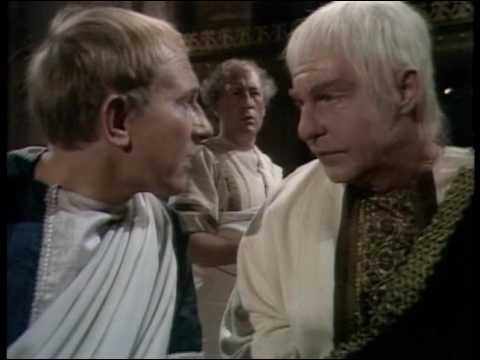|
home | what's new | other sites | contact | about |
||||||||||||||||||||||||||||||||||||||||||||||||||||||||||||||||||||
|
Word Gems exploring self-realization, sacred personhood, and full humanity
500 Leslie Flint Tape-Recordings 500 Testimonies from the Other Side
Editor’s Prefatory Comments: This writing featuring the 500 Flint tape-recordings might rank among the most vital-to-know on the Word Gems site. Before analyzing the findings, however, it’s necessary to address the unspoken question of many: “How do we know that these recordings are authentic and legitimate? What evidence do we have that Leslie Flint was not a fraud? How can we know that all this was not just a grand hoax?” These are important questions and need to be asked. Happily, we will find that the work of Leslie Flint was thoroughly investigated in his day.
Leslie Flint, circa. 1970
Leslie Flint was presented to you in Afterlife item #5, Direct-Voice Mediums. You’ll want to read additional information there. But the work of Mr. Flint is so important, his work having been tested and scrutinized so thoroughly, and, therefore, the resultant evidence so supportive of post-mortem survival of consciousness, that it deserves our special attention as a separate listing here on the Afterlife evidence page. Over several decades, from the 1950s to the 1980s, many hundreds of tape-recordings were made of persons from the other side offering testimony concerning their lives in Summerland, with 500 of these recordings available, free, online, for anyone to study. I personally have reviewed these and will be presenting summary thoughts below. Also, please consider an article by Michael Tymn concerning the authenticity of Mr. Flint's mediumship: Evidence of the Validity of the Leslie Flint Recordings
how the data from "the 500" is presented On the “Summerland” and “Summerland 1-Minute Essay” pages you will find a substantial list of the more prominent features of the next world. The reporters of “the 500,” in the main, supply much corroboration in this regard. However, to avoid duplication, the already-presented characteristics of Summerland are not often discussed in the findings herein. Instead, I have attempted to offer from “the 500” that which might be considered new material.
Is “the 500” a good representation, an accurate survey, of people’s views in Summerland? Strangely, I feel the answer to be ‘no.’ When I began my study of “the 500,” I took note that many polls today might offer a high degree of accuracy based on a sampling size of only 500 participants. The respected Rasmussen polling service does well predicting outcomes of elections based on numbers of this modest order. But, if the poll is conducted within a neighborhood in which a high percentage of the citizens subscribe to a particular political viewpoint, then the outcome of the polling data will be skewed in favor of that local mindset.
For the data to be relevant, it must be representative of the whole. “The 500” is not representative of the whole of Summerland; not even nearly. Here’s why:
Think of an expanded checkerboard. Let’s allow the many little squares to represent all of the philosophical “neighborhoods” of Summerland. There might be thousands or millions of these over there. The Flint “500” constitutes one little square on the board among a horde of diversity. For those who do not know what I’m talking about, you’ll want to review the discussion in “The Wedding Song” concerning what Andrew Jackson Davis called “brotherhoods” on the other side. Allow me to quote from that writing: Andrew Jackson Davis, the great mystic and spiritual teacher of the latter 1800s, speaks of his visions of Summerland. He tells of a wild-west commotion, all shapes and sizes, concerning what he terms “brotherhoods” dominating the lower sectors of Summerland. Jackson reports of groups representing the Catholics, the Muslims, the Shakers, and indeed every religious sect; some of these groups go back thousands of years to the Gnostics, and to the ancient Egyptian mystery cults, ones who still believe in Ammon Ra; groups devoted to philosophies of ancient Greece, Babylon, and other early civilizations; groups representing primitive peoples, such as the American Indian and the Australian Bushman; there would also be the Flat-Earthers, the New-Agers, the Pythagoreans, the Platonists; groups promoting atheism, polytheism, or animism; groups divided according to country: the Germans, the British, the French, and every nation; groups who live like Gypsies, just wanting to travel all the time without putting down roots. We could list many more; it’s a zoo. It should be noted, as well, that Emanuel Swedenborg, one of the most accomplished and famous persons of the eighteenth century, also reported of these brotherhoods in his own mystical visions of Summerland.
Let’s put this another way. If alien visitors landed on Earth, hoping to learn about us, and if their flying-saucer dropped anchor in New York’s Times Square, the “little green men” would get one view of what it’s like here, but if they came to rest in the middle of a North Dakota wheat field, they’d come away with a different opinion. (My Dad would put them to work, they'd be sorry they came.) You see what I mean. And Summerland is far more complex, far more diverse, and far more expansive spatially than our little planet; some reports say that Summerland is millions of miles wide and long.
Further, Leslie Flint was British, and most, not all but most, of those “coming through” to speak via his mediumship were British, and so "the 500" would tend to offer the British outlook. Also, Leslie Flint seemed to believe in reincarnation, as did the “sitters” in his “circle” who spoke to the visitors from the other side. It is generally known that the belief-system of the medium will affect and shape the outcome of the message; that is, the medium will tend to attract those of like mind from the other side. Not all but the vast majority of those who “came through” via Mr. Flint believed in reincarnation. We will have more to say about this below.
life is like an elephant; or not
My old college friend, Adrian, recently reminded me of the ancient Sufi parable of the elephant: There’s a well known Sufi story from the 12th century about a group of blind people trying to figure out what an elephant is. One person would feel the ear and say it’s like a velvet carpet; another would feel the trunk and say no, it’s a hollow pipe; yet another would feel the leg and say it’s a pillar - but no one has the vantage point to see the whole elephant. The totality of experience is never accessible. “The 500” constitutes a great and unwieldy corpus of information, not easily defined and categorized. Its totality will remain inaccessible; nevertheless, let us begin the review. the dog that didn’t bark I will say this, however, right at the start: in my opinion, one of the most salient features of this entire formidable cache of data centers upon what is never mentioned. Like Sherlock’s telling clue, it is the dog that didn’t bark.
********************************************
picture the setting On the Earth-side of the communication, there was Mr. Flint along with the “sitters” who would interact with and question the other-world communicators. Mr. Flint, unlike Anna Wickland or Rick Rickards, was not a trance-medium. He was fully conscious during these communications; in fact, he too was able to converse – though he usually did not -- with those coming through to speak. The “voices” did not flow through Mr. Flint’s mouth but, instead, issued, as it seemed, from within the room generally. Everyone attending could plainly hear the voices. Some of them were faint and some were booming. Editor’s note: This reminds me of Emily French (see on the previously-mentioned #5 Direct-Voice Medium page), the aged and frail little old lady through whose mediumship thunderous voices, like a rock concert with the amps turned up too high, sometimes filled the room. And on the Summerland-side of the communication, there would be the primary communicator, but also – I’m going to use my own terms here – a “sound crew” or a “stage prep team.” Editor’s note: Let me remind everyone of the need to rid ourselves of the “harp, pink cherub, and floating on clouds” mentality, the traditional Big Religion fairly-tale, fake-news view of “heaven.” Summerland, in the main, is a normal world where people do normal things and live normal lives. And the “laws” of physics – Dr. Sheldrake would say, the universal “habits” of nature – apply to that side just as much as to ours. In briefest outline, regarding technical requirements for communication, here’s how it works. Matter vibrates at a different rate over there. In order for a communication to be possible – at least, via direct-voice mediumship – the “vibrations” have to be made to match. This is why those who have recently passed over, those still “earthbound,” or those living in “neighborhoods” of Summerland vibrationally nearer to the Earth, have an easier time getting in touch with relatives “back home.”
The “sound crew” in Summerland, not so unlike a stage-team setting up equipment, helps the communicator to prepare for the liaison. The communicator will speak into what they say looks like a "box" or a "mask" -- their version of a microphone -- in order for the Flint team to receive a message. Very often the communicators will fret, "Oh, this is so awkward speaking into this thing," and then they will say, like some Verizon commercial, "Can you hear me? I don't know if you can hear me!"
From “The Vital Message” (1919) by the great afterlife researcher, Sir Arthur Conan Doyle: "The question of mediumship, what it is and how it acts, is one of the most mysterious in the whole range of science. It is a common objection to say if our dead are there why should we only hear of them through people … It is a plausible argument, and yet when we receive a telegram from a brother in Australia we do not say: ‘It is strange that Tom should not communicate with me direct, but that the presence of that half-educated fellow in the telegraph office should be necessary.’ The medium is in truth a mere passive machine, clerk and telegraph in one. Nothing comes from him. Every message is through him.”
Regarding "matching the vibrations," there are sometimes technical difficulties from other sources, as well; bad weather on Earth, or too much electromagnetic interference from the Sun, producing "static on the line." Also, if the sitters were to be of a hostile or skeptical frame of mind, this too would shut down the "vibrational" lines of contact. Editor’s note: If technical difficulties could be overcome, it is theoretically possible to create a kind of “phone line” between our world and Summerland. Imagine speaking to Grandma over there as readily as if she were in a Tampa Bay condo. Scientists on this side and that are working on things like this; whimsically, one such project is called the “soul phone.” We should not easily dismiss this. It wasn’t so long ago in our history that a trip to the Moon was just a fantasy, or a contraption of metal, flying a like a bird, sounded like the height of folly, or even today's instant retrieval of virtually all of humankind's knowledge, with just a click of a finger, seems fantastic, too. Further, it's not just "phone" but "screen monitor" contact with loved ones in Summerland that might be possible. We've been able to effect visual contact from impossibly far-away places like the Moon or Mars or Saturn, or even from Voyager I, billions of miles away, and so it's "old hat" to us now, we can do this from anywhere - we just need the right Skype hook-up. Tell Grandma it's coming in the 2.0 upgrade version, and that "the graphics are awesome," as the kids say.
most of “the 500” were well spoken, some highly educated, most of average intelligence, but a few were quite low-level and even rude A small number coming through sounded confused, in a dazed condition, with little concept of what had happened to them. One lady, whom the sitters called “Laughing Molly,” poor dear, seemed so fragile and incoherent. She would laugh too much and at inappropriate times, was nervous and unsure of things. She was quite religious. Undoubtedly, she’d expected to find a world of “harps, pink cherubs, and floating on clouds,” a world of God and Jesus sitting on white marble thrones, the Blessed Virgin at-the-ready to comfort, with a lot of hallelujahs mixed in everywhere; but it didn’t work out that way for Molly, and now she didn’t know what to do. Editor’s note: Molly's “didn’t know what to do” could have been easily remedied with a little knowledge about the afterlife. If you were anticipating a trip to Paris, wouldn’t it make sense to learn something about the local culture, the major streets and places of interest, how to say a few phrases so you could buy a cup coffee? This is common sense. But, due to the propaganda of Big Religion and the fear of death in general, most people usually say, “I’ll worry about the next life when I get there. Right now I’m too busy living in this world. I’m going to live one life at a time.” The fear of death is dealt with in different ways, and this marginalizing of the Great Adventure is just a smoke-screen for unspoken terrors of what they feel will be judgment to come; which is inaccurate because no one is judged; however, only the rare individual, it seems, will accept new information to address this in an open and honest way. Concerning the terrorized outlook of "Laughing Molly," very frequently “the 500” speak out against the rigid, anti-intellectual, anti-humanistic, fear-and-guilt ridden religious view as probably the very worst frame of mind one can have upon transitioning. It really messes you up, is something one needs to grow out of in Summerland before any progress can be made, and typically, for the hard-core, requires restorative therapy in a cult-deprogramming hospital for new arrivals. A mental rigidity, pretending that "I already have all the truth, all the one true doctrines, the one true church," leads people to incapacitating, reason-denying, egoically-induced phobias; that is, until one figures out one has been royally had by Big Religion and the Nice Young Man at Church. the stagecoach robber Another hapless, but tragically colorful, figure was that of a brigand, a highwayman, of old England. This stagecoach robber had died by hanging, and he spoke condemningly of the judge who sentenced him as “that rascal.” This poor fellow, tormented, no doubt, by scores of years of self-pity and wailing, would lapse into a mumbling fit, singing a mindless little do-dah-do song from childhood. We are reminded of the uncharitable barb of Herman Melville: "You are no doubt destined for high elevation - but only at the gallows." But, there is hope for all. Editor’s note: I’ve known people who lived a life of nearly-perpetual churlishness, petulance, and victimhood. At the end of their unhappy mortal time, with personality having been all but burned out and hollowed by continual complaining and egocentrism, they will assuredly enter the afterlife, like the highwayman, with diminished abilities of mind. Not infrequently, in my experience, the worst of these inveterate offenders are also religious. Some of the most damaged in this group believe that they can be as nasty and uncharitable as they like with no sow-and-reap consequence. They were taught, a long time ago, because they believed the right doctrines and attended the right church, that you can game the system by getting your “sins forgiven” with a magic wave of the hand by the Nice Young Man at Church. In this cynical view of the universe, God is purchasable, venal, a bribable cosmic bureaucrat, who easily hides his face from justice at the mere mentioning of magic words. Pretty sick stuff, pretty perverse. And little wonder that those of such unrealistic, Machiavellian, and immoral mindset have a great deal of trouble when they crash into how things really work on the other side. Even my Dad, who was basically a good man, but burdened with incompetent and merchandizing religious advisors, communicated with me, "Nothing over here is like I thought it would be!" Dad was in a bad way for some time, but he's doing better now. The good news is that we can all find healing, escape the clutches of Big Religion, begin to live authentically, and finally find our happiness. Editor’s note: The woeful figure of “Laughing Molly” waiting to be met by Jesus or the Blessed Virgin, like waiting for Godot, is most tragic and pitiable. But she is one of untold millions used by Big Religion in its power-and-control methodology. I still recall, when I was about ten, Dad giving me a facts-of-life talk about how things really worked in religion; it went like this: “God is too angry and mean, you can’t deal with him, he even killed his son; and Jesus, well, we don’t say too much about him; but The Blessed Virgin, now if you want to get your prayers answered, you have to go to her. She’s the one with the real power up there. God won’t turn her down. She’ll stand up for you to the angry God, she's nice.” Dad's "hitch-hiker’s guide to heaven” is not official RCC doctrine. If pressed, the hierarchy would deny any of this. But Dad wasn’t making this up; unofficially, it’s a common view, closely held in the Church, and millions fervently believe this as gospel. The concept of a "Virgin Mother as Queen of Heaven” is found in many ancient cults. This satirical image of "dear mother as public-relations intermediary to an evil father," a "Carol Burnett skit" interpretation of the moral universe, along with other misanthropic precept, was cut-and-pasted from age-old marketplace superstitions to render the new Christian religion more palatable and saleable, more comforting and familiar, to the fearful masses. It will be asked, however, “Some near-death experiencers report that Mother Mary came to the aid of the discarnate traveler. Does this not prove that she is a goddess of heaven?” My answer is, no, it doesn't, it’s more complicated than that. See the article on “The Near-Death Experience.” During the NDE adventure, people see what they’re programmed to see, what they want to see, and what they need to see, at least for the moment. If it were their time to take up permanent residence in Summerland, they might have to spend a while in a cult-deprogramming hospital, but, if they have to go back, then the exigencies of the moment will be addressed with temporary solution. How do we know this? Read about the case of the three farm workers who “died” together, left their bodies at the same time, and entered a "shared NDE." While absent from the mortal frame, they encountered a radiant being; only one such being came to meet them. However, later they compared notes on what they experienced. Each was convinced of seeing a particular beloved religious icon or some noted other: one saw Buddha and the others saw something else according to one's cultural conditioning. What does this mean? It means that none of them interacted with objective reality. It was just an orchestration, some custom-crafted pageantry. The radiant being was either a thought-projection (see below) or a Spirit Guide presenting him or herself in a manner that would not shock the uninitiated percipient. But as I was saying above, some coming through via Mr. Flint were just plain rude, in a childish way. They would start fights, make baseless accusations, and imagine the sitters to be against them. One notable case was a fellow, sporting this bellicose attitude, who had caused Mr. Flint to snicker. The immediately-offended visitor shot back at the medium, "What are you laughing at?!" Catching Mr. Flint off guard, he deflected lamely with, "I'm not laughing!" - said he, laughing. This was funny.
a variation on the “holodeck world” Several of my writings I consider to be very important, and it’s difficult to say which is primary, but there’s one that’s definitely a top-five favorite: The Holodeck Worlds: How We'll Find Wholeness in Summerland from the Traumatic Sufferings of Planet Earth. Everyone needs to have this information. It is more than wonderful. I cannot explain too much here as much discussion is required; however, just to say, as we advance a little over there, we will have the ability to control our environment in a true “mind over matter” way. As we mature, we will be able to bring into reality, as thought-projections, whole worlds for our particular, personally-defined happiness and pleasure. I suggest you read the article. However, more than one of “the 500” spoke of a variation on this principle. They report that famous characters, for example, in novels – but it could be other forms of artistic expression – “live” in worlds that one can visit and with whom one might interact. Let’s choose an example: David Copperfield and Agnes. It will be possible to go to a world where you could meet David and Agnes, enter into conversation, go to dinner with them.
See the article featuring the love between
How does this work, how is this possible? The thought-force, the desire and focused attention, of many people who love these characters brings them to a kind of “life” in a special world. But, even though David and Agnes would seem very real to a percipient, as real as any person, they would not be true human beings, they would not have souls. It’s a simulation, a thought-projection, but a very convincing one, and people engage in this kind of interaction for the sport of it. Welcome to Summerland, in this example, the “2.0 upgrade version,” for the advanced student over there. Editor’s note: These soulless thought-projected entities were observed by Franchezzo in his travels through various spirit dimensions (see extensive excerpts on the “Dark Realms” page). He said that some of them reminded him of wispy clouds: “These curious little beings have no real separate intelligent life such as a soul would give, and they are so evanescent and ethereal that they take their shapes and change them, as you will observe, like the clouds on a summer sky. See how they are all dissolving and forming again afresh." He further comments that one who practices the so-called “black magic” arts might be skilled in conjuring these entities, but not without great harm to the creator. These “soulless creatures … whom a certain class of practitioners of the so-called black magic made use of in some of their experiments, as well as for carrying out their evil designs against anyone who had offended them. But, like deadly weeds at the bottom of a dark pool, these astrals draw down and destroy in their soulless clutches those who venture to meddle with them unprotected by the higher powers."
Bobby Tracey, a five year-old, talks about his life in Summerland: "I'm a very good boy, everyone tells me." This little fellow informs us that he goes to school, plays games, learns geography and history. Bobby lives with his mom (no longer on the Earth). He says he doesn't know how he died, how he got there, but he has a lot of friends now, and he plays [British] cricket, has a nice garden, and likes to play with his animals, a dog, a cat, and a horse.
"I'm a very good boy," he beams, "everyone tells me." He would have us know that he wears short trousers, swims in a river, and a nice man takes him and other children for rides on a boat. They all go to an island for fun. And Bobby is learning how to draw. And he knows that his dad, still on Earth, “has another lady” now. His one protest, however, is that "they won't let me have soldier toys." Bobby says he wants to be a school teacher when he grows up. “Everybody is kind here,” and "you can help people better on this side, and you'll be young over here," too. And, oh, yes, "we have nice chairs and carpets," and "sometimes I eat an apple," he just wanted us know. [smile]
the following may be the most touching and dramatically moving personal narrative among "the 500" When people cross over to the other side, assuming there is no extreme hard-heartedness or terror of mind (which might send one to a “shadowland” for a while), they will invariably find themselves in a situation custom-crafted to make them feel at ease and at home. This sense of familiarity and peace may be engendered by dear loved ones personally meeting the just-transitioned; or by waking up in a garden or restful room, some venue of tranquility that the newly-departed from Earth will resonate with. In certain cases, however, the new arrival might experience much more. One of the most poignant and touching examples of this made-to-order serenity was experienced by George Wilmot. During World War I he’d been a British soldier fighting in France.
Decades later, when George woke up in Summerland, he found himself walking on a very pleasant country lane. It all seemed vaguely familiar, but he couldn’t quite place it. Proceeding, he spotted a farmhouse in the distance. Now a sense of déjà-vu descended upon him forcibly. “No,” he thought, “this can’t be right! It can’t be that farmhouse!” But it was. During his tour of duty as a soldier in France, he'd met and spent time with a farm family. And there was a girl. The family was so nice to him. They were all so wonderful. And he knew that he was falling in love with this French girl. He had to move on, though, but she remained on his mind. He hoped to come back and marry her. Later, to his horror and deep sorrow, he learned that the farmhouse had been bombed and totally destroyed. But now, in an uncanny replay of history, George, in Summerland, is walking up that same country lane, to that same farmhouse! “They can’t be in that farmhouse!” he cautioned himself. But they were; all of them, including the girl he loved, who was waiting for him; she’d waited for him in Summerland for many decades. And this time he would write a new ending to their love story.
it's been a long, long time
This theme of a young soldier in France, with a farm family, and a girl, seems to come up again and again. It’s virtually a Jungian archetype. We encountered this in the story of Della and Gordon; it’s also found in movies and literature. Editor’s note: Strangely, this even happened to me, though not as a soldier, at least, not the military kind. As a young man, attending bible college in England, I spent a portion of a summer in France as part of a French-immersion language program. The logistics of my stay were arranged by others, meaning, none of that which transpired was my own doing. As with George Wilmot, there was a French farm family; and there was a seventeen year-old girl: intelligent, beautiful, virtuous, capable – a “perfect” girl. I cannot offer great detail here concerning this seminal event in my life, but, simply to say, the whole family – parents, siblings, and the young girl – were so hospitable and warm toward me. It was all so wonderful. And I marveled at this event, but not in the way you might suspect. I noted that I was not falling in love with her, which greatly puzzled me: “How could I not be falling in love with this perfect girl?" I thought, "and, indeed, one from a perfect, loving family?” This would be one of the great lessons of romantic love in my life. I learned that even a “perfect” girl, from a perfect family, is not enough to make a perfect marriage. She did not belong to me, I sensed; there was no perception of “soulmate, myself,” her name was not “written on my heart,” and I soon felt this mystical distance, a vague emptiness, a lack of substantial affinity. Had we come together, over time, we would have been unhappy living with each other as I could not have given her what she needed and deserved. And though I’ve written four books discussing these issues, allow me to say and to emphasize that your Twin Soul, when you’re finally allowed to meet her or be with her, will not necessarily, at least in the beginning, be your “Twin Personality” or your “Twin eHarmony-Match.” There will be things to work out, and, in the early stages, you might clash more than you embrace. It might very well be like two raging rivers meeting in great turbulence. But despite this sometimes-perturbation at the surface of life, at the depths, at the level of deepest person, to your greatest shock, you will recognize her as yourself in another form; which will issue, as the great Spirit Guides say, with a sense of oneness “so magnetic, so overwhelming,” an overpowering feeling of coming home, of utter familiarity, of “you are just like me” – such that you will become lost in an amazement of love, lost in a profound wonderment of all that she is to you. Those two raging rivers eventually meld as a cosmic blissful serenity; the scripture offers imagery in a famous phrase, "peace, like a river."
Michael Tymn and colleague suggest that the Dino and Annie Nanji case may be the most significant for post-mortem survival among thousands reviewed Michael Tymn conducted an interview with an afterlife researcher. Part of the discussion addressed the question, what is the most evidential information for post-mortem survival? “Firstly, the Annie Nanji tapes from the Leslie Flint mediumship séances. This incident was never widely publicized, yet it remains hard evidence of survival that anybody can listen to online. In essence, an Indian doctor communicated via direct voice with his deceased wife, Annie, over the course of a decade. They were able to carry on their relationship, discussing tiny details of each other’s lives, which makes the possibility of fraud almost non-existent.”
A Swedish chemist, Dr. Dinshaw R. Nanji, via medium Leslie Flint, was able to communicate with his departed wife, Annie O. Nanji, who “died” of cancer in 1966. This couple conversed with each other, across the dimensional divide, for over ten years, from October 1970 to August 1983. Michael Tymn's article speaks of the "tiny details" of their lives which made "the possibility of fraud almost non-existent." For example, Annie knew how Dino made up his bed that morning and folded the covers in a certain way. She knew about his diet, what he had for breakfast. She knew about his walk in the park and the little things that took place along the way. She knew all these things, there were few secrets to her, because, as she would frequently attest, she was with him. Editor’s note: Read more of the Nanji case here; the implications of which are astonishing in terms of our coming life in Summerland. a missionary outreach trip to the dark realms: "we're happy with our life here, why do you come to bother us, we're not troubling you, why don't you just leave us alone and go away"
A most instructive testimony was offered by Dr. Stephen Ward on the other side. He and two male colleagues ventured into the Dark Realms in order to persuade those who might be persuaded to enter Summerland to begin a happy life. This missionary outreach effort was not unlike what we learned from Father Benson. Typically, as Ward describes, the farther one penetrates into “the rat cellar,” the rockier and more desolate becomes the terrain. Eventually, deeper into “no man’s land,” there are no trees or grass at all, just a vast expanse of sterile, inhospitable landscape, of the sort resulting from a “nuclear winter.” Ward’s team encountered a small village outfitted with the most poverty-stricken huts. The pitiable denizens, the people living there – if they could be called people – seemed more like frightened animals, were dressed in rags or, now having lost a normal sense of presence and propriety, simply walked about unclothed. Ward said he felt like he’d stumbled into some ultra-primitive third-world scene, and it made his skin crawl. Presently, an alpha-male, a seeming leader of the hapless “Neanderthal” group, met the outreach team. They were invited into the chieftain's private dwelling, quite modest and unremarkable, but “palatial,” Ward said, compared to the extreme destitution of the village rank-and-file. Female servants, presumably, concubines of the head-honcho male, scurried about and were made to fetch refreshments, which appeared to be some sort of nameless fruit. Ward reports that it tasted insipid, virtually flavorless, a sorry excuse for food. we're all happy here, we're good, said the tribal leader And now, with a modicum of deference having been offered the visitors, the local cult leader begins to chide his unwanted guests: “Why do you come to us? Can’t you see we’re happy? We’re content here. People like living the way we do. We're doing just fine. We’re not bothering you or causing you any trouble. Why don’t you just leave us alone and go away?” After a few more pleasantries of this order, the outreach team decided it was time to leave. The alpha-male offered to walk them to the border of his kingdom; a gesture not so much rooted in courtesy but rather his way to make sure of their departure. After a short walk, they came to a bridge, which may have spanned a waterless river. The bridge constituted a kind of back-door to Summerland. Soon the team would be crossing the bridge into a world of sunshine, singing birds, green grass, and flowers. However, as they all stood peering at the bridge, the conversation went something like this: “Have you ever been curious to know what’s on the other side of this bridge? Have you ever been there?” questioned Dr. Ward. “No, I’ve never been there,” countered the tribal leader, “and I don’t want to know what’s there.” “You should search this out,” said Ward, undeterred. “There’s a better life for you and your people over there. They’re too afraid to cross this bridge and make a change on their own, but if you set the example they would follow you into a new world where everyone could have a good life.” But the alpha-male was adamant: “Just leave us alone. We’re happy here. We don’t want anything else.” Translated: "I don't want to give up my power over these people." As the missionary team neared the other side of the bridge, though the tribal leader was somewhat far away now, Dr. Ward commented that he could sense the inner spirit of the man left behind – a feeling of great relief to be rid of the meddling travelers. He felt threatened by the coming of the Summerland trio. It was more difficult, in their presence, for him to hide from himself and to play his power-games. Editor’s note: There is much to instruct us here, many important principles to edify. There are individual egos, but also collective-ego institutions, and they're both fueled by the same negative energy. We will address some of this in the discussions below.
an ancient sage, a Chinese man, purported to be thousands of years old, a modern day Jeremiah, warns us about unqualified teachers offering a false view of reality He wouldn’t give his name, didn’t want notoriety, but the sitters believed him to be either Confucius or Lao-Tzu. This could be true. Along with only a few others among “the 500,” he struck me as very wise and insightful. 'they are not content in themselves, they always want more and more' The Chinese man speaks out against an entire class of would-be teachers, seeking a following and a name for themselves, who make appearance at the Flint sessions: “Many people who come to these [Flint] meetings do not have an open mind, though they profess to have it. Their minds are full of their own importance, full of their own pre-conceived ideas. Even those who preach from your platforms, who profess to be spiritually-minded are full of their own importance. And the little knowledge they have got is twisted and contorted into such ways, that it cannot give a true picture of things spiritual… they are good souls, in intent and purpose, but they are not great souls, not highly advanced souls… they are not great souls in wisdom or spiritual understanding, they are not a great people of realization of truth… But we realise that the majority of those who are so-called spiritually minded, are far from being spiritually minded. Oft-times they are immersed in their own vanities, they are immersed in their own ideas and ideals and they are not content for themselves. Always they want more and more… [they] have a little knowledge, but are vain and say that they have all knowledge... some have a [small amount] of truth but they distort it for their own purposes... there is no such thing as directly receiving messages from highest origin “It is extraordinary how it is that people who have not the slightest knowledge, who have not, within themselves, the slightest indication of spiritual progression, who expect that they shall receive from the higher spheres, great souls to come to them, to work with them. It is only true that you would [wish] these [higher] souls come to you [to teach], that you [imagine yourself to be] worthy to receive those souls that will be able to work with you accordingly. It would be impossible for certain souls to come and to work. I have heard it said that, in certain circles, certain souls come, of very high origin and make direct contact. I deny this. I say that this is an impossibility - that you do not, and cannot, receive from certain souls on very high spheres, a direct contact. Because I know there is no one in your world who has spiritually progressed to the state that they can tune in. It is not possible. It is an impossibility. [Editor's note: compare this to Father Benson's report, below, on the "Ruler of the Realms".] we can receive, in a meaningful way, only what we're spiritually attuned to receive Editor's note: notice the earlier phrase "tune in". "Man can only receive that which he himself has made possible by, not only his thoughts, but by his actions, by his very way of life. You may receive and do receive - which is quite a different thing - messages from highly evolved souls, but it is done through a system of relay. It is other souls on lower spheres [acting as the mentor] they act, as it were, as the instrument. They transmit the message of spirit through the sources of instruments, to you. But the direct contact; when I hear, as I have heard it said, that there are people in your world who have received direct contact with Jesus and other great souls, I [have] to say this is not true." Editor's note: They are “good souls,” says the ancient Chinese man. They might live in your neighborhood in Summerland. They will smile and offer pleasantries, and they would help you if they could. However, in spite of the conviviality, they’re quite insane, out of tune with their own sacred selves.
To say that these people are “good” means, as we discussed in the “morality” article, they have good intentions. They believe their own propaganda that what they do is the right way. We infer this positive self-judgment by the fact, as we’ve said, there are no invasions of Summerland. Those of untoward motive and blatant selfishness are automatically filtered out by the “vibrational” system in place there. Because Summerland’s “insane 500” are not filtered out we can know that they are “good” but, as per the Chinese man, only according to limited definition of goodness. There might be good intentions, but the goodness is very shallow and brittle and not founded upon knowledge.
'and there was war in heaven' A phrase from the book of Revelation. Well, we’ve been over this and over this, and there is no such being as Satan – he does not exist – and there are no fallen angels as demons; this, too, is fable. But, even so, there is “war in heaven,” with the field of conflict extending to the Earth-world. The battles will rage for the next million years and probably longer. It’s a war fought not with bullets and bombs but with half-baked ideas, propaganda, fear and guilt, and cultish mind-control. We’ve already seen that there are many thousands of "brotherhoods" competing for the hearts, the mental assent, of humanity. Editor's note: All of these thousands of dysfunctional “brotherhoods” represent a cultish mindset. But, why should there be a “war” for increased numbers? The answer is, successful proselytizing efforts make the collective-ego institution feel “more” with the added membership; and feeling “more” is what all egos crave. But, let’s simplify this.
only two camps Fundamentally, there are only two camps at variance. All of the many thousands of philosophical “brotherhoods” fit into one or the other.
Father Benson challenges the opposing camp, the pseudo-spiritual teachers Father Benson is one of the great afterlife-reporters. In some respects, he's my favorite. When it's my time, I intend to set up my little Summerland farm in his “neighborhood,” outside the nearby university town. This would be ideal for me. In his first two books, channeled testimony, Benson tells us of a very subtle form of government in the Astral Realms. While there is no overt government in Summerland "telling us what to do," there is, nevertheless, a "Ruler of the Realm," that is, a superintendent of Summerland, who, as Benson says, does not "rule" so much as "preside." This is what we would expect for non-cultish self-managing creatures such as ourselves who require personal freedom, a minimum of supervision, to enjoy our eternal lives. But Father Benson also provides a paradigm-shattering report of a supra-overseeing "Ruler of the Realms" -- plural -- a very ancient being, billions of years old, existing before the creation of the Earth, who looks after all of the "Summerlands" of each intelligent-life supporting planet in the universe. Editor's note: Allow me to remind us of a posting on the "Afterlife" main-page. The following helps us understand the likelihood of immense numbers of intelligent-life worlds out there:
Let's further explore what Benson says about this "Ruler" and what the latter represents in terms of some indication concerning the direction of humanity's evolvement and destiny. Here are some excerpts from Father Benson's first two books. "As we progress into those high realms [i.e., where very ancient beings such as the "Ruler" dwell], we shall not lose our individuality in supposed etheric clouds and [we shall not] become lost to everyone except the dwellers therein. We shall ever continue to be ourselves, our True selves; refined, to be sure, more etherialised, but still, YOU will be YOU, and I shall be I, no one else..." Father Benson makes a specific point about not losing our individuality because he's speaking, not just to you and me but, to an entire class of persons on the other side. There are lots of teachers over there who preach a very different path of evolvement for us. As we shall see, desiring to lose one's individuality is all they do.
'utterly and completely unapproachable' - really? well, we can hardly wait to be with them "There are mistaken notions [preached by this other philosophical camp] that the beings of the highest realms are so ethereal as to be practically invisible except to others of their kind, and that they are utterly and completely unapproachable; that no mortal of lesser degree could possibly view them and survive. It is commonly held [by this other group] that these beings are so immeasurably higher than the rest of us that it will be countless eons of time before we shall ever be permitted to cast our eyes upon them even from a remote distance. That is sheer nonsense." Editor's note: "even from a remote distance"! - wow. [There are those] "who believe that the beings of the highest realms never by any chance leave those realms, because it would be too appallingly distasteful for them to leave the rarefied state in which they live. That is absolutely wrong. Those marvelous beings [represented by the very ancient "Ruler"] can, and do, journey into the different realms. It sometimes transpires that an individual may be speaking to one such personage and be totally unaware of it." Editor's note: "too appallingly distasteful" - Father Benson is not above roasting "the insane 500." [The Ruler of the Realms] "is not [God], though one can understand the inference you might be tempted to draw even from the little we’ve told you. ‘He is known by sight ... to every single soul living in the realms of light. How many thousands there are who name him as their beloved [teacher] … "He unifies the whole of the realms of the spirit world [that is, all of the Summerlands] into one gigantic universe, over which reigns [God]." Notice that this loving father-figure, “The Ruler of the Realms,” billions of years old, is known by sight to every person in all of the Summerlands across the universe. As Father Benson reports, the Ruler visits from time to time, shakes people’s hands, tells them a joke or two, smiles and speaks knowingly of their personal lives. He is not “high and mighty,” the kind who is “too holy” to get his hands dirty by visiting with us. just your regular head-honcho of the universe kinda guy, no big deal Further, the "Ruler" also invites people to take a trip to visit him where he lives. Father Benson received one of these invitations and was given a tour of the "Ruler's" home and gardens. The most noteworthy item of this tour, I think, is the detail that the "Ruler" has a special fondness for white roses and makes a hobby of cultivating them. This is what normal and real people do, and we breathe more easily to see that we are headed for a normal and real life of ordinary good things. a wonderful display of ordinariness, a comfortable authenticity In this wonderful display of ordinariness, by a person many billions of years old, in existence before planet Earth came to be, we are given a brief view of what our long-term destiny looks like. It's a very comforting view. There's nothing jarring and marring about it. We discover that the most highly developed persons in the universe are not strange, self-important, and eccentric beings, not "high and mighty" "holier than thou" gods on Mount Olympus, but simply those who have learned the fine art of enjoying their own lives and beings. But let me tell you this, there are those in Summerland, posing as "advanced" teachers, who do preach a gospel of this sort of “unapproachable” holiness. They do believe in becoming so “high and mighty,” so lofty and "spiritual," that, under pain of "appalling distastefulness," they could never communicate with us again. But, mercifully, as Father Benson charges, “That is sheer nonsense.” “The 500,” by and large, as a majority view, promote the things that Father Benson, the ancient Chinese man, and Brother John condemn. There are many points of difference. We will speak of several. How can this disagreement happen? Do they not all live in the same Summerland, the same universe? How can each camp view reality so differently? What’s going on here?
all this begs a question Some will begin to worry that this "war in heaven" might disrupt one's long-term happiness: “I thought there were no bad influences, no invasions in Summerland. I just want to live a quiet happy life there and be free of any threat of war, battle, or coercion. But now it seems that I have to be on guard against a malevolent force.” Let us state what we know: There are no invasions in Summerland. No one can disturb you against your will. No one is going to come for you, a knock at the door at midnight. There is no fighting in the streets, no coercion, of any kind in Summerland. No one will move against your peace over there. There are no external threats of any sort; unless you allow them. How might you "allow them"? Unless one is properly centered philosophically, if we become part of the wrong camp, if we draw our essential energy, so to speak, from the wrong source, eventually, we will end up harming ourselves, burning ourselves out, drifting into mental imbalance and insanity, which will threaten our own survival. We will discuss this "existential crisis."
the two camps defined
As we said, fundamentally, there are only two camps in play here. All of the many thousands of philosophical “brotherhoods” fit into one or the other. "The 500," as a majority view, constitute a group led by: (1) the False Self, the Dysfunctional Ego, the Bereft "Little Me," the Incessant Loneliness. Those for whom one's life is founded upon the False Self are led by perceptions of "I do not have enough" because "I am not enough." As such, they are driven to "add" something to themselves, to "complete" themselves, to "enhance" themselves, because, in their "distorted" view of life, as per the Chinese sage, they are not enough, not yet perfect, not yet whole. Further, they see themselves as alone in the universe, a "me against all" siege-mentality; defensiveness, protectiveness, is part of the air they breathe. Living in this nightmare-world of "never enough," of never measuring up, of never being safe enough or good enough, and because "the glass is always half empty," they are driven to become frantic "doers," workaholics, a pathological emphasis on activity, rather than, as enjoyment and sanity require, resting quietly in essential "being." This personal existential vacuum, a feeling of great worthlessness, causes them to believe that much time is required to make themselves a finished product. As such, they look forward to the future as salvation. In the meantime, their inner demons of "I am not enough," a perpetual guilt of not reaching the high bar, lead them into subliminal self-loathing, a frenetic craving to be rid of what Hoffer called, "the spoiled self." This perpetual unease shapes their view of ultimate reality, that toward which, they insist, all humankind is evolving; but only their diseased eyes see this. We now understand why the ancient Chinese man said that they are never "content" but always wanting "more and more." Editor’s note: Maybe the ancient Chinese man is Buddha, or his student. Well in line with what we say here, Buddha taught that desire, in the sense of craving, a hunger based on inner neediness, is the root of all suffering. We shall not disagree with this proposition.
I need, I need, I need!
But there is another group which views life differently. For them, one’s wellspring of existence is centered about:
Think of that funny scene in
These two camps are like a bifurcating tree trunk, becoming two antithetical ways of looking at life.
Each of these sections, each major division, derives from the primary trunk, which means that each of the two views has access to the same underlying Universal Consciousness; however, one view builds its life squarely upon it, that is, an awareness of the True Self, while the other is lost in a world of illusion and proceeds from the False Self. Editor's note: I suspect that this is the true meaning of Jesus' parable about building one's house on a rock as opposed to sand; the latter is destined to be swept away by floods. It's called existential crisis.
The ancient Chinese man says that the False-Self group are 'good' people. What does this mean? It means that they’re convinced that what they do and say is right. They are sincere – but sincerity, without a tempering knowledge, can be an overrated commodity. They are sincere, but sincerely wrong. Enthusiasm without knowledge is just a euphemism for fanaticism. Many of “the 500” speak of those in their company as “advanced” and, as such, exhibit an aura of light and radiance. We might presume -- doubtless, they do -- that a spirit-being, splendiferous, bathed in the effulgence of light, automatically and necessarily, offers indication of a certain degree of perfection. But this view is incorrect. Sincerity, per se, without more, unwarrantedly issues as efficaciousness. And this good intention, albeit rooted in naiveté, a confidence of the foolish, all by itself, will create the radiant spirit-body aura – even if the views of the radiant are in error. These “good” people teach us much. They know nothing of living from one’s sacred center; know nothing of the god-life within. As such, they placard what happens when one attempts to negotiate life-circumstance without finding “God within.” Those thus afflicted become unrealistic, neurotic, brittle, unsteady. In a larger sense, this is how we all live on all levels of awareness. None knows the totality of God. All possess but a few grains of truth; all of us, to one degree or another, live in worlds of illusion. We never see the entire "Sufi elephant"; we never shall. There's always more knowledge to come, and so our task is to remain open and teachable. All this acknowledged, however, if our spirits are centered in "God within," we'll be fine and move forward in due time; we'll enjoy a measure of psychological health. See the “Morality” article for extensive discussion on the primacy of good intention. But I will tell you this. A day will come when the ersatz "good" of the “advanced” False-Self group begin to realize the precarious nature of their peculiar "goodness," their errant philosophical positions, and, when that happens, if they do not change their lives accordingly, those radiant lights they're so proud of will go out pretty fast. As Spirit Guide Abu warns, it's possible -- if we try very hard -- to regress, to lose what we've gained, to turn away from the truth with "eyes wide open"; and, in that case, he says, the backslider would "sink and sink into darkness."
Because we are creatures endowed with a freedom to choose, change is a two-way street. Abu knows, too well, how this works because, early on, this "sinking" happened to him. His wisdom was hard won, not unlike that of Lateece who spoke of the "madness maddened."
'The 500' often address the topic of being happy and content. They claim to be feeling fine. But then, so did the tribal leader in the Dark Realms. In the “Levels of Consciousness” article we discussed that, no matter where one finds oneself on the ladder of development, even on the very lowest rung, one can experience a sense of “I am right in what I’m doing, I am content.” Further, there will be a form of happiness associated with this sense of having arrived, paltry advent though it may be. This is why the tribal leader in the Dark Realms could say, “We’re happy and content here. What me worry.” But this is not the full-bodied happiness and joy of one living from the True Self. This is an ersatz form of happiness, a sense of childish and cultish security, a faux-wellness, fostered by the False Self experiencing the “inner neediness” as temporarily mollified. With the tribal leader and his minions, we witness a cultish “dance with the devil”: he needs to be needed to feel good about himself, and his subjects need the security of being looked after, decisions made for them, of feeling accepted. Virtually all dysfunctional hierarchical organizations, including the diseased marriage, operate within these untoward dynamics. Feelings of being needed and accepted can present themselves as a sense of happiness and contentment; but only for a short time. Soon the apparent pleasantness will become one’s prison.
As we analyze the testimonies of 'the 500,' we find that virtually all of it, in one form or another, represents their attempt to rid themselves of 'the spoiled self.' Imagine two particles traveling in outer space. Let's say they proceed very nearly in straight lines with reference to each other, a mere half-a-degree at variance. This small disparity, as they move on, will eventually translate into billions of miles of separation. This separation, increasingly so, is what's happening to our two philosophical camps. But let's remain with our analogy of the bifurcating tree trunk.
As these two major sections grow and grow, each becomes more and more a separate world. They might as well be separate trees, separate realities, after a while, with the differences becoming more and more stark. The topmost little branches, in each major section, might symbolize ultimate reality and destiny, where we're all headed in terms of cosmic evolution. But the two camps, deriving from the True Self and the False Self, see these grand destinations very differently. In the "better neighborhoods," people live life normally, happily, and have rose gardens; "across the tracks," though, it's all very dark and dystopian with the inmates "jumping off cliffs into nameless oblivion." We'll see about this.
Allow me to list some of the main “talking points” of “the dysfunctional 500” which, the more they speak, reveal a foundational belief-system. Editor's note: All belief-systems become an attempt to "complete" oneself, to "enhance" oneself, with just the right "one true doctrines." Virtually all of the thousands of "brotherhoods" in Summerland exist to address this sense of emptiness. People identify with their chosen belief-system, and this, what they hope will be, an "upgraded" identity becomes part of the False Self; temporarily, they feel "more" in the make-over because, they assure themselves, their own particular "brotherhood" offers the last word on "the truth." They all claim this. As Bugs used to say, "monotonous, isn't it." Editor’s note: “All belief-systems? What about good belief-systems?” Strictly speaking, there is no such thing. See the article on “Believe.” To “believe,” in common usage, essentially means to plant the flag on one philosophical view or another; it purports to “know” when it does not, and cannot, know. "Belief" often serves as synonym for "superstition," an unwarranted mental assent. The enlightened view does not “believe,” as such, but, instead, forms tentative judgments based on current evidence, pending further light. And there is always more light, more information, to come. There’s a whole universe of knowledge out there, and, therefore, the wise and clear-thinking person holds current perceptions of truth loosely in one’s hands, because, as we learned from the Sufi elephant, we can never embrace the totality of reality. The fullness of truth shall remain inaccessible for a very long time; possibly, forever.
Editor’s note: Concerning many of the following items of discussion, I have written entire articles. As such, I will introduce the concept, but then invite you to read a much-expanded treatise elsewhere on the Word Gems site. #1: Getting rid of the spoiled self: 'You must lose yourself in charitable service.' This notion of losing oneself in service, when I first encountered this phrase among “the 500,” I thought, “This is a poetic metaphor highlighting devotion and dedication to good works. I like it.” But then, as if “the 500” were speaking to each other, seemingly, from a script, I came across “lose yourself” multiple times. And it struck me: “This is no metaphor. They really believe this stuff.” When I say “believe this,” I don’t think they’re entertaining overt suicidal thoughts at the mention of the phrase, but neither do I think that the occurrence is totally accidental. The concept of "losing oneself" really appeals to them. It speaks to their secret delight. And it speaks to us, too, as we’re offered insight into their group psychology. From one point of view, “losing oneself” in service sounds very religious. I mean, who could criticize you for “losing yourself” in charitable service to the world? "Ah, look how spiritual we are! - even to the point of utter self-renunciation." Even Mother Teresa would have a hard time competing. And this "losing oneself" is part of the allure and the propaganda: like Mattie threatening with lawyer Dagget, the insane-500 “draw it like a gun.”
Editor's note: When Jesus spoke of "denying the self," of taking up one's torture stake as the death of self -- and I hate to be the one to break the news, but -- he wasn't talking about the True Self. “Losing yourself” in “doing,” especially in good works, is a great place to hide from yourself, one's truest motivations. And hiding, escaping, from the True Self is what the False-Self group is all about. Much could be said here, but I will spare you the redundancy. Read about it in the four “Spirituality” and the “Morality” articles. But, let’s ask the question: Is there anything wrong with “losing oneself” in doing good for others? Isn’t doing good, with utmost dedication, a good thing? No, not really. Service has its place but it's not our primary purpose in life. And we’re not supposed to “lose ourselves” in anything; rather, we are to become increasingly aware, more conscious and “present” to the inner life, the True Self. The Gospel of Thomas wonderfully presents Jesus speaking of the soul's need to enter augmented consciousness regarding all that we do. And this is why Big Religion attempted to destroy all of the Gnostic Gospels – too much emphasis on one’s personal link to God and life, and too little on Dear Mother Cult and the elitist hierarchy. But, let’s move on.
#2: Getting rid of the spoiled self: 'To advance yourself, to evolve as a person, you must engage in good works.' This is probably the most popular, the most publicized, error of the False-Self group. It’s not propaganda for them – they really believe it’s true. Funny thing, from one perspective, it is true, but from a deeper level, it’s not true. Editor’s note: There’s a joke about this, it goes like, “That’s a true principle – but when you say it, it’s wrong." You’ll want to read about the details in the aforementioned four “Spirituality” and the “Morality” articles. A slightly modified assertion of Kant helps us to understand:
What does this mean? It means that good works, properly motivated, will assuredly “raise one’s vibrations” and advance us spiritually. All open-eyed citizens of Summerland are actively engaged in some form of helping and serving. But, without that proper motivation, a necessary foundation and "grounding," there will be no spiritual growth. Stated another way, you can't go out and "serve" and advance yourself just by that; virtue cannot be “added” to one’s essential self just by effort alone; though, paradoxically, effort will be required to serve others, but it's not the effort as such that wins the day. Spirituality cannot be "added" to you -- it's already within you. It's our natural state. If we begin a charitable mission with "gain" in mind, we're already off-base; we might win the temporary favor of the crowd, but there will be no virtue, no true advancement, in such activity – as Jesus used the phrase, “you've already received your reward.” We cannot, assuredly, engage in good works for the purpose of “gaining reward,” earning some external benefit (not "grounded in"), and expect the soul to evolve. The truly spiritual person works for the simple joy of helping one’s brothers and sisters, and this, for its own sake - external payment never enters the equation. Helping others will be a natural and normal extension and manifestion ("arises from") of living by the True Self. It's not about effort, not something for which we grit our teeth, huff and puff, as means by which -- like earning a merit badge in Scouts -- to make oneself a spiritual person. But there are lots of people who do think it works just this way.
'being is doing', right action inevitably follows being
How does all this relate to getting rid of the spoiled self? It’s like this:
A fish doesn’t know it’s in water, and the truly advanced person doesn’t run around talking about how advanced he or she is, or how much it's coveted, or how near one is to the “next level” - sounds like an MLM "opportunity meeting." The psychologically-healthy person is simply enjoying life, out there taking pleasure in the rose garden, just glad to be alive and doing all sorts of interesting things -- and some notion of “advancement” does not often enter the conversation. Who craves or needs "advancement" when you sense the life within? However, the False-Self group does little else. It's all they talk about; these "fish know that they're not in water." The subject of so-called “advancement” is everywhere in their discussions. They can’t get away from it. They're obsessed with "getting to the next level." And here’s why: It’s a ticket, as they subliminally see it, to leave the sense of emptiness, the "I am not enough," the spoiled self, far behind, and that’s what’s most important to them and what's really going on in all this empty godtalk of theirs about "spiritual advancement."
#3: Getting rid of the spoiled self: 'When you advance yourself, you get to live in a better world, with more vibrant colors, prettier flowers, and greener grass.' This proposition, the "seven levels of heaven" theory, is really an extension of #2, but, as it’s so very frequently discussed by the False-Self group, it’s best to mention it as a separate entry. This off-base assertion, a song of discontent, has been somewhat thoroughly discussed on the “Ultimate Reality” page, the “Verse Three” page of “The Wedding Song,” and the "Terror of Eternal Life" page. Here is the essence of the problem. There’s nothing wrong with levels of advancement or enjoying the added “technicolor” of other worlds. Most of us would like to travel the universe in the future, and I’m sure we’re going to find a lot of marvel and wonder out there. But when the False-Self group speaks of this desire, it becomes a function of their neediness; of requiring “more and more” content; of never feeling it’s enough. They’re always seeking after better real estate with greater curb appeal, just as materialists in our world can never be satisfied with what they have. My friend Adrian really nailed the heart of this whole problem: Ultimate Reality is not some upscale real estate somewhere in the universe. It's a state of mind, a level of consciousness. Ultimate Reality, the highest states of pleasure and well-being, will be found within one's deepest person, the domain of the soul’s Joy. It’s not "out there somewhere" but within each of us. Father Benson, Life In The World Unseen: “God is no nearer to us in the [purportedly ‘higher’] spirit world than He is to us in the earth world, it is we who are nearer to Him, because, among other things, we can see more clearly the Divine Hand in this world, and the expression of His Mind.” Yes, that’s it exactly – we will be nearer to God not when we climb a ladder to a higher world but when our own minds are better attuned to Divinity; whether on Earth or in Summerland, or anywhere. And "ultimate reality" doesn’t get any better than that, anywhere in the universe. Because you can be on a beautiful white-sand tropical beach, here or on some "higher" world, and still be miserable if the "I am not enough" chanting in the head won't shut down. Stated differently, to reference an old song by Linda Ronstadt, we might gain that big mansion but with a “tear in every room.” Special note: This idea of reaching an ultimate level of perfection, that is, a kind of final-footing of reality, was debated by Einstein and Bohm. In an article devoted to this issue it was stated: Einstein contended, regarding interpreting reality, “The Lord is subtle but not malicious, and ultimately the Lord will show us the ultimate level of reality.” But Bohm thought, no, below that there is another level of reality, and below that another. There're an infinite number of realities. On this Bohm and Einstein didn’t agree. For Bohm the universe was inexhaustible; for Einstein, there was an ultimate level, and that would be the end of physics. There is every indication, especially from the “sane 500,” that Bohm had the winning hand here. We are eternal beings, “sparks of God,” of unlimited potential and capacity, and the thought of reaching some sort of delimiting ceiling cannot be correct. There is no limit to the depths of Universal Consciousness, and, therefore, there is no limit, no final “seventh heaven,” to our portion of this.
#4: Getting rid of the spoiled self: 'After eons of time, after advancing beyond recognition of former estate, when we reach lofty level with nothing to do with lower planes, then we'll lose our personhood and merge totally with God.' Editor’s note: “The 500” come very close to asserting the above. Others of their brotherhood, however, those speaking through other mediums, do say exactly this, and so I include it here. This death-wish of jumping off the existential cliff into Nirvana nothingness needs little interpretation. Here it is, in the raw, their long sought-for unvarnished ideal of ridding themselves of Self. Does this ring true to you? Does it make sense that God/the Universe/Life would go to so much trouble to individuate us - to say nothing of our own trouble and suffering - only to flush us all away at the end into some nameless, identity-less ocean of being? I think not. Father Benson, and many others, would utterly deny this. But those who are driven to rid themselves of Self just love this stuff. And look – it’s the perfect cover, too. It’s even better camouflage than “losing oneself in good works.” It’s “merging totally with God,” and who could argue against this kind of supreme godtalk? There is, however, the small detail that we -- our individualized selves and personalities -- would be destroyed in this process. But who accounts for such trifles when a great spirituality is to be won such as being rid of ourselves.
Dr. Carl Wickland, “Gateway Of Understanding”: “To enter heaven we must take heaven with us… Mediums sometimes inform inquirers regarding friends or kindred who have recently passed out, ‘They are very happy and are now in the Seventh Sphere.’ Such statements imply lack of knowledge concerning the nature of spheres. ‘Spheres’ are not localities but grades of development or attainment… Spiritual ‘spheres’ are not places, they are degrees of attainment of understanding and may be compared with grades in various schools.” Father Benson, Life In The World Unseen: “God is no nearer to us in the [purportedly ‘higher’] spirit world than He is to us in the earth world, it is we who are nearer to Him, because, among other things, we can see more clearly the Divine Hand in this world, and the expression of His Mind.” Yes, that’s it exactly – we will be nearer to God not when we climb a ladder to a higher world but when our own minds are better attuned to Divinity; whether on Earth or in Summerland, or anywhere.
Editor’s note: Concerning the so-called "merging with the All," the reality is, we're already merged with the All, we already enjoy seamless link and connection with God, with no clearly defined demarcation between ourselves and divinity, at the soul level, right now, and even a million years hence we shall, potentially, enjoy no closer proximity. But those of materialist bent see God as separate, far off, and "out there" with a proposed meeting for us only in the distant future. See more discussion on the "true self" page.
#5: Getting rid of the spoiled self: Reincarnation, the weapon of choice Virtually all, I would say all, of “the 500” as members of the False-Self group, believe in reincarnation (“R”) and past-lives. It’s so popular with them because “R” is such a handy way to rid oneself of Self: you lose your memories, you recast yourself in a new identity, you send yourself into the existential hopper and hopefully come out better at the end this time. But it doesn’t work that way. Some who believe in “R” do so reluctantly. A slanted and filtered view is presented making "R" seem inevitable, it sounds right, "so what can you do if that’s the way the universe is run, you have to believe it." I was in that group early on. I didn’t like it at all, but it appeared to be correct. But then I came across better, more honest, teachers, especially James Webster, with more complete information, who helped me see that “R” is a great con-job, just fake-news, a giant propaganda effort by those who are rabid to be rid of themselves.
My “Reincarnation” writing here on Word Gems is more like a book, a very lengthy one. It’s comprised of 90 sub-articles, analyzing every major facet of this bogus argument, presented to the public as the height of spirituality. You’ll find the famous premises of “R” to be errant; such as, more experience makes us evolve, the need to unwind karmic debt, past lives as proof of reincarnation, the Earth is the only classroom, and other illusory tenets. This is a subject you’ll want to study in detail as there is so much disinformation in the marketplace. But, if you just want the "Cliff's Notes," all you really need to know is that “R” is not true. Go and live your life now and be happy in your rose garden.
#6: Getting rid of the spoiled self: 'The really spiritual ones not only lose themselves in service but reincarnate to help others.' You might see this one as combination of #1 and #5, but it comes up so often in the discussions of “the 500” that I felt I should address it as a separate item. The argument of serving and helping is meant to be another one of those untouchable propositions: “Who would dare criticize a plan to help someone else?" But I will endeavor to explain that there’s less here than meets the eye. The essential issue is this: There is a time to lend a helping hand, but there’s also a time to allow the butterfly to emerge, alone, from the cocoon - and maybe we've heard that "helping" a butterfly to emerge will destroy it.
This is a very large subject, easily mishandled, and I hesitate to address it here as brevity is mandated; however, since the False-Self group attempts to make so much hay out of this, I feel compelled to say a few words. Allow me to begin by quoting the apostle Paul. In my Galatians commentary, in chapter six, I point out a principle that’s hidden in the original Greek. Let me post the relevant section from the writing, then I will offer statement. Please take special note of verses 2 and 5, the two different Greek words for "burden":
6. 1. Brethren, if a man be overtaken in a fault, ye which are spiritual, restore such an one in the spirit of meekness; considering thyself, lest thou also be tempted. ye which are spiritual. Paul speaks to those who live and walk in the Spirit (5. 25). meekness. This is the same word used in 5. 23, one of the fruits of the Spirit, a characteristic of true spirituality, as defined here by Paul. overtaken in a fault. Paul’s reference to one overburdened by “a fault” probably points to more than ordinary human weakness in the church. He has, in the previous verse (5. 26), spoken out against rivalries and disharmony, all stemming from, Paul claims, not only the works of the flesh, but its rancorous doctrinal expression of the Judaizers. Therefore, the phrase under review in all likelihood is a reference to individuals of the Galatian congregation who have fallen prey to legalism. Paul here instructs the spiritually minded on how to deal with their works-oriented friends. restore. A "spiritual" one should engage in confrontation, not to extract an apology, but only to seek the righting of his wayward, legalistic brother. 6. 2. Bear ye one another's burdens, and so fulfil the law of Christ. Instead of “provoking of one another” (5. 26), thereby adding to the group disharmony, Paul advises a policy of supporting the weak. All of this is further practical outworking of his teaching on living and walking in the Spirit (5. 25). the law of Christ. With this simple phrase Paul, in effect, summarizes his grace-oriented position. The law of Moses has been superseded by the law of Christ; it is a law of love directed toward neighbor (5. 14). 6. 3. For if a man think himself to be something, when he is nothing, he deceiveth himself. think himself to be something. Paul seems to be saying that an unwillingness to “restore” (6. 1) an offending brother is rooted in a kind of self-delusion; pride may whisper the seductive message, “I would not have done what he did.” This is all wrong-headedness, Paul chides, an exercise in fooling oneself. 6. 4-5. But let every man prove his own work, and then shall he have rejoicing in himself alone, and not in another. For every man shall bear his own burden. let every man prove his own work. Instead of entertaining unrealistic opinions of oneself, Paul prods, a spiritual person will be humbly proving or testing his own standing in the game of life. every man shall bear his own burden. An apparent contradiction of a just-mentioned rubric, this phrase delivers more than meets the eye. “The Greek word for burden is different, baros (verse 2) meaning ‘a weight or heavy load’ and phortion (verse 5) being a common term for a man's ‘pack’” (Stott 159). Personal sin weighs one down (verse 2), Paul, the pastor, explains, and we can help one so burdened if we have a mind to. However, there is another kind of burden, one relatively light and common to all mankind, which must be borne by each individual alone. A summary of verses 1-5: When we are injured by someone, one “overtaken in a fault,” it is very difficult to remain emotionally detached, difficult not to focus on our own pain. If we agree with ourselves to speak to the offending person at all, our natural inclination is to do so only to squeeze an apology, or more, out of him. In any case, we want to focus on him, what he has done. Curiously, however, in these five verses we find the Apostle of Grace admonishing us several times, in several different ways, to think about our reaction to “another,” even though that other is introduced to us as one "overtaken in a fault." In other words, we might ask, "He is the problem, right? So why are we talking about me? Let's talk about him!" Unfortunately for us, we meet little comfort here from Paul. We find him telling us to approach our brother not only "in the spirit of meekness" but also "considering thyself, lest thou also be tempted." We are told to help shoulder the heavy "burden" of the brother at fault, the refusal of which implies a harboring of unrealistic evaluations about ourselves, a self-deception. We might feel, after all this, that finally enough has been said about our part -- but Paul is not ready to relent. He goes on to explain the philosophical underpinnings of our duty. There is a saying, "You cannot become a saint by reciting the sins of others." Humanly, however, we think that we can find vindication in this process, and it is this notion that Paul is addressing here. Without excusing the sins of the offending brother, Paul in effect says to us, “You may feel great pain due to what someone did to you. But if you focus on that pain, it will dominate you and define your life.” “Let every man prove his own work” means that even while you evaluate, even condemn, what your brother did to you, you must never lose sight of the fact that you, too, share the same human condition; you, too, but for the grace of God, could do the same or worse under sufficient provocation. "Prove your own work,” teaches that, as you correct your brother, you must be "putting your own deeds to the test," judging your own self a frail human being as well. We have a natural tendency to think that "life will be good if only we could get rid of this situation or that person;" however, this is all illusion, Paul intones. Our future "rejoicing" will result from accepting responsibility for our own lives, from our own reaction to the trouble that befalls everyone of us. Life is inherently unfair, more or less a disaster for all participants; but, as the saying goes, though we have no control over the direction of the wind, we do have power to adjust our sails. This is why a man will "have rejoicing in himself alone, and not in another." We will find our victory in life from what we ourselves do -- not from extracting satisfaction from those who have hurt us. This primal responsibility over one's own person and attitude cannot be delegated away, the one "backpack" which every person must carry through life - alone.
Paul wrote his words 2000 years ago, and I wrote mine 20 years ago, but it’s all still true, and it will continue to be true any number of years from now. Some burdens in life we bring on ourselves, and when we see a “brother” or sister in need, we should lend a hand if we can. People mess up, we all do, but it’s no big deal, it’s just part of growing up. There are always good people around, somewhere, to help us; not always, and not every time, but we’ve all been helped now and again by others during our journey in this world. And because there are always good people around, to one degree or another, it would be very foolish to actually reincarnate, to enter a mother’s womb all over again, to begin first grade with the A-B-Cs, just to offer this kind of transitory aid. There’s no need to play “savior,” to think that one’s “help” is so crucial to another. There are natural processes in place to guide our development and must be allowed to work. All this acknowledged, there is another kind of burden that has nothing to do with messing up. It is the burden of becoming a sentient being. On the Word Gems homepage I quote Dr. Ernest Becker who puts it so well: Victory "over human limitation is not something that can be programmed by science … It comes from the vital energies of masses of men sweating within the nightmare of creation … The most that any one of us can do is to fashion something - an object or ourselves - and drop it into the confusion, make an offering of it, so to speak, to the life force." Yes – “the masses of men sweating within the nightmare of creation.” The suffering inherent within this God-ordained process of becoming fully human, the “long dark night of the soul,” I would contend, is far worse than the batterings issuing from our messing up. It is the butterfly that must struggle from the cocoon - alone.
Respected Spirit-Guide Abu, on the other side for 3500 years, informs us that, not many, but a few, persons on the other side do volunteer to come back to this Earth, to reincarnate, for special missions of service. I do not wish to be disrespectful to any charitable effort, but my sense of these things leads me to suggest that no one should come back. There's no need. There are always good and wise people, "suffering servants," right here, on hand, who can render aid, if such aid is deemed to be appropriately rendered. One of the great revelations for me in recent years came from a favorite teacher of mine, Pastor Dr. Leslie Weatherhead. His careful analysis of the New Testament reveals, strongly suggests, that Jesus himself changed his mind about the efficacy of his own mission. It seems that Jesus came to see that his decision to come to this world was a wasted effort and, indeed, made things worse. I believe that Weatherhead’s analysis of the New Testament documents is correct. But here is the biggest reason why no one should take it upon themselves to come back to “help.” The apostle John had it right: You don’t need any man to teach you.” See the discussion here. This is what John is saying: God will teach each of us personally. Not facts of the world, not temporal things, but we’re talking about anything really important, the big lessons of life, mainly, the mystery of what and who we are, especially, to God. No other person can help us here. This will require a shift in consciousness; not more “content” on the brain - though facts can help, but facts of the world will not take us to where we want to go. The soul has its own timetable of awakening, of “struggling out of the cocoon,” and no one can “help” and speed up that process. This is the burden, as the apostle Paul had it, each person must carry alone. And now you might ask, how is this a principle part of “getting rid of oneself”? It works like this: the False-Self group, because it’s not plugged into the True Self, has an unrealistic view of how life works, of how people grow and evolve. It’s unrealistic because they themselves have not yet authentically gone through the process. They’re still hiding from themselves, trying to "lose themselves" in service. As such, they don’t understand what it takes to become a sane and mature person because they’ve "cut class" on this subject. And so they believe that you can “help” people change themselves. They’re always interested in the subject of changing the self, but not in a normal, healthy way. For them, “helping” someone means helping them to be rid of their spoiled selves; and, as they "help," they earn more merit badges toward superseding and losing themselves. And this is the real draw for the False-Self group. It's something perverse once you see what's really happening with them. “God will teach us personally.” When it’s one's time to “open the eyes,” insights will start popping like popcorn. You won’t be able to shut it down - nobody can help you or can stop it. And then, when "God teaches you," as the poet expresses, “every blade of grass,” every twinkling star above, will preach to us, will now begin a process of giving us everything we need to know about the big questions of life. Elizabeth Barrett Browning: Earth's crammed with Heaven
#7: Getting rid of the spoiled self: 'The essence of life is constant change and new events, constant movement; we must always be 'doing,' always urging ourselves forward toward some new work or vision. If we don't, we can't survive.' This was another one of these seemingly scripted aphorisms that kept on coming up, and coming up, so very often, in the discussions by the “dysfunctional 500.” Further, it would be asserted with an attitude of, “This is the way it is. I’m over here, and I really know about these things.” There is one problem, however -- the proposition is wrong. Well, once again, this is one of those yes-no answers: it’s true on a certain shallow level, but, when we go deeper, we find it to be altogether wrong. What is the exact problem here?
Think of the ocean’s surface during a storm. It’s constant change and motion with the waves and the wind. But, if you go down a few hundred feet, it’s all quiet, dead-silent, the picture of repose. At the surface of human existence, there’s constant change with all manner of activity. It will always be that way, even in Summerland. But none of this is our “life.” All of that change, of which they speak, occurs within the domain of life-situation, one's life-circumstance. But unadulterated "life" is something far different.
'life' and 'life situation' are two different things Our life is found deep inside, within the soul, our link to God. God is Life and therefore a conscious union with the divine also becomes a perception of life within. This is the essence of our spirituality. At that deeper level, we find peace, joy, love, and all of the godly virtues transmitted to us via Universal Consciousness. It is an utterly unchanging world of peace and joy “down there.” It's always available to us, and it never changes. The “insane 500” know nothing of this inner serenity. They confuse life-situation with life itself. Two different things entirely. And because they’re still living from the False Self, they believe that life is the storm at the surface of the ocean. That’s all they know right now. All of this is linked to “getting rid of the spoiled self.” The False Self needs constant busy-ness, motion, and change because, in this dizzying schedule, more “content” to "complete" the needy “Little Me” will be found. However, the self-imposed frantic pace of life-situation, all the clamoring and pot-banging noise, also brings an ever-increasing degree of toxicity to their persons. It’s all unsustainable. Eventually, and it doesn’t take long, they begin to burn out, and seek for ways to escape the self-imposed noise and do away with themselves. It sounds like an addict out of control; it is.
#8: Getting rid of the spoiled self: 'A master vibration, like a warming sun in the sky, will soothe and smooth away all the bad in us so we can be happy.' In the 1932 book, “I Saw Heaven,” Arthur Yensen describes his near-death experience. On the other side, he spoke to people who explained that, if one’s “badness” is not too great, one can enter Summerland to find a complete rejuvenation. This is accomplished, they said, by a “master vibration” from which healing frequencies attune our spirits to itself. Yensen’s “master vibration” is not referred to as such in the “500 testimonies,” but its equivalent is prominent. The “master vibration” principle is implicit within the concept of higher worlds offering a kind of personal-development salvation. Would there be anything wrong with this idea? After all, if we could get rid of the dysfunctional ego just by a bathing in healthful healing-rays, why not “spend a day at the spa” and remake oneself? It might sound good, but think of the implications. If one’s spirituality were dependent upon geographical location, then how could we move about freely in the universe, as "the Ruler" does when he visits his charges? If we were dependent upon some external "vibration" to sustain us, we'd be like Superman under a red sun, losing superpowers when away from a yellow star. But it gets worse. If a healing-ray could surgically remove the dysfunctional ego, would we still be ourselves? We might not always like the ego, but it does represent our free will and, to expunge that, would we remain human, or now transform into some kind of robotic entity? Is this happiness? All this is impossible. The true essential self, the soul, cannot be touched, influenced, managed, cajoled, led, bribed, or vibrated into some new condition. It remains unmoved despite all changes at the surface of personality. It is a part of God, indestructible, unviolated in the face of all summonings. When it "stirs" it does so by its own volition, and nothing else. The “master vibration” concept was created by dysfunctional ones ever seeking for opportunity to “be rid,” as they see it, of their defective selves, as they hope for a new and improved version of themselves. And this explains, too, why “the insane 500” speak so much of not being able to “come down from Mount Olympus” once they’ve attained to a lofty pantheon! – and this is why Father Benson, spoofing them, says that it’s “appallingly distasteful” for these tin-star gods to get their hands dirty by dealing with the rabble below. These “insane ones” see their essential goodness, if it were to exist, as inextricably linked to living in a higher world which, in itself, they believe, maintains their so-called goodness. All of this is rank pathology. We don’t need a “master vibration,” all we need is to “go within” and allow our innate “made in the image” potentialities to expand and blossom. Allowing this, we carry our own inviolable sufficiency with us wherever we go. No requirement for a portable battery to keep us juiced, a “master vibration”; we already have one deep within, in the sacred soul, linked to Mother-Father God. The message, again, in all this error becomes: Beware of teachings which speak of “salvation” from any external source.
#9: Getting rid of the spoiled self: 'Eons from now, we will lose gender identity, male and female will no longer exist but blend into an androgynous uni-person.' Have you noticed? Whenever they have no evidence of something occurring, they immediately hide behind, "it'll happen in a bazillion years, just you wait and see." Of all the distasteful doctrines of the False-Self group, this one needs to win a prize for “most disgusting.” Several of “the 500" reference this idea, and when they do it’s offered with a certain smugness and elitist disdain, a haughty air of “only the highly advanced could ever understand this.” Now, they've never actually seen this happen, they have no proof, but it's what they want to believe; and they are so uppity-sure of themselves. This unbecoming precept of "the insane 500" directly and forcibly contradicts the teachings of many of the ancient Spirit Guides who proclaim that sacred romance, the joy of the true marriage, will last forever.
The Troubadour Spirit Guides, especially, (see “The Wedding Song”) are adamant that not only does authentic romance help us to become more like God, but that, without its attendant pleasure and joy, there will be no true eternal happiness for any of us. But, the False-Self group wasn't really planning on staying around that long anyway. Someone, one of these camps, is seriously wrong. But our own internal guidance-system attests and knows which view is correct. In truth, stripped of the empty god-talk, this pernicious and bankrupt idea is but one more attempt by the False-Self group to do away with their “spoiled selves.”
the dog that did not bark On the Word Gems homepage, I reference the poet who speaks of romantic love as that which “we stay alive for”; or, as Elizabeth confessed to Robert, “I am living for you now.” This is right, normal, and natural. And, again, the ancient Spirit Guides do not disagree but, indeed, offer substantial concurrence. (See a listing on this page of many testimonies from the other side honoring the eternal spiritual marriage.) Spirit-Guide Margaret particularly is so bursting with joyous fervor to speak of the happiness of true love. (See her lengthy testimony on this page.) None of this really surprises us because our own hearts and souls confirm all this, cry out to love and to be loved. We know, without a doubt, that we were made to love endlessly. the true marriage longs for an endless perpetuity, for romantic union never to end Andrew Jackson Davis, The Great Harmonia: “[True] Marriage is the actual blending of two distinct souls, attracted to each other by a power over which neither has control, so long as they remain within the sphere of each other's attractive force... As they did not will themselves into this relation, they cannot will themselves out of it… Where there is true marriage, universal experience testifies that, it longs for an endless perpetuity... nature creates no desire for which an equal supply is not also created "and the very existence of this desire demonstrates to me the fact that nature designed the union to be perpetual. The want is natural, and Nature creates no want for which she does not create a supply.” But, "the 500", out of attunement with their deeper persons, have no knowledge of the soul's desires. And so, when we review the reports of the dysfunctional 500 and discover that they never ever mention the happiness derived from true love, this absence of discussion itself becomes quite telling in terms of revealing pathological state of mind: a "spoiled self" cannot perceive true love. It is Sherlock’s dog that didn’t bark. Editor’s note: Online you may read for free a very large number of channeled-testimony books written during the last 150 years. I have discovered that the majority of these works represent thinking from the “wrong side of the tree.” When they speak of love and marriage, invariably an Earthly John-and-Mary viewpoint is presented. For example, these reporters know nothing of Twin Soul union; for them, most marriages of this world are just fine and meant to continue in Summerland; and, in the case of one not having found love while on “the sorrowful planet,” they say a mate will be secured fairly rapidly upon transition. The authentic Guides, however, teach that almost all marriages of the Earth are DOA over there, and that it's not so easy to find your true mate because the first order of business is finding yourself, your true self. But, for the mad-hatter reporters, it finally occurred to me, there is no perception of natural law or Spirit-Guide influence; instead, it’s all continuation of Earthly custom and convention, of Herodotus' "nomos," of mere happenstance in play, a random finding of one’s “fish in the sea.” For all their empty godtalk, there is no sense of living within the Spirit, no purview of divine destiny, no “made in the image” purpose, no measure of discerning God’s will for one’s perfect happiness. See further comments on the "Summerland 1-Minute" page as addendum to Brother John’s remarks concerning "law and order" in Summerland.
we’ve spoken of fictional characters inhabiting special worlds, just for them, created by the power of thought, but the 'dysfunctional 500' have done something similar Consider the irony. The “dysfunctional 500” themselves become fictional characters, of sorts, in a made-up world; “fictional” in the sense that there is no actual place to jump off a cliff into total oneness with God; there is no super-melded androgynous uni-person; there is no universal, pandemic reincarnation; there is no ultimate reality as greener grass and prettier flowers – we could go on.
The unapproachable, disdainful haughty, high on Mount Olympus, the "proud and puffed up," as per Brother John, would dispute the contention that none of this is real because some of their brotherhood do visit such places; but, it exists only for them, to those of a consensus-reality, those who’ve agreed, those who desire, to “move into” this kind of “sand-castle in the sky” -- but it’s all quite fictional to us. The Ruler of the Realms does not, we presume, actively preside over this rogue fiefdom within his kingdom. This makes sense because, on the False-Self branch of the “tree of life,” the Ruler doesn’t exist. They’ve never heard of him there, except possibly as a fictional character.
Editor’s note: Speaking of things that don’t exist, this happens a lot for the False-Self group. I stated that there are 90 sub-articles in my “R” writing. Virtually any one of these writings would severely set back and knock in the head the whole idea of “R,” but this information is totally ignored by the dysfunctional 500. Here’s just one example. The 40-year research of Dr. Carl Wickland is classic to this case. He provided hundreds and hundreds of examples of confused spirits trying to reincarnate, but they could not. However, on that “other branch of the tree,” they act as if Dr. Wickland never existed. It’s sort of like Doc Brown and Marty realizing that, in their new skewed timeline, some people don’t exist there. I’ve wondered about this: "How can ‘the 500’ blithely blather on about past lives and ‘R’ when this has already been thoroughly refuted, and from dozens of angles?” The answer seems to be, this evidence, researchers like Carl Wickland, doesn’t even exist on that “side of the tree,” that alternate reality.
The following “inset box” was written for the “holodeck” page, but it serves us well here, too:
and here’s the poster-boy example, right from the ranks of 'the 500,' on why you can’t 'help' others Many of “the 500” were just ordinary people, but some of them were famous in their day. One of these, when I saw his name come up, caused a little excitement for me: “Ahh, at last," I thought, "here will be a sane and wise person.” As a mortal on Earth, this person had received information from the other side, from wise Spirit Guides. This advice I count as among the best available. The ancient Spirit Guides spoke of the error of reincarnation; they understood the essence of true spirituality; they knew about the importance of “going within,” finding God within one’s deepest self; and they offered a vision of how a mature and well-adjusted person will conduct him or herself. And so, with eagerness, I reviewed the testimony of their former student, now a resident on the other side. I expected to receive further insights based on the private mentoring, and, what I assumed were, the many years of living according to the best wisdom. But what a shock for me. This former student of the great Spirit Guides now, afflicted with Patty-Hearst Syndrome, spoke as any misguided one among the dysfunctional 500! This person hadn’t learned a thing from all that private tutoring – and not just from any teacher, but some of the best on the other side! What does this mean? It means that the person wasn’t ready to learn, not yet open to change. And it didn’t matter how much “help” was given. Is this not utterly amazing? Also, this person never even mentions the famous tutors, the famous Spirit Guides who came to teach. They don't seem to exist in this person's world anymore. Is this not very strange? Wouldn't you at least mention this famous interaction of the past? Editor’s note: A sane person among “the 500” addressed this issue of "helping" very insightfully: He said that trying to reach, to help, some people is "like expecting a child to read an essay that was written by a professor." Yes, exactly, absolutely. Some do not and cannot “get it.” They’re not ready. They’re too immature, too plugged into the False Self. Also, another of the "sane 500" said this, to the effect: "They presume to have helped many in their purported past lives, but they cannot even help themselves, as they are yet caught in delusion." Amen and amen.
the hidden craving for self-riddance blocks clear thinking Editor’s note: Above, I commented on “spoiled-self fallacy #4”, that, the notion of future “merging with the All” is defective because we're already merged with the All, with no waiting required; however, this will sound unsatisfying to the "insane" for what they really want is not the "merging" so much but the expunging of self; and this hidden craving for self-riddance dissuades them from accepting any of the authentic remedies already in place. Nevertheless, to clarify and restate concerning all 10 fallacies, each one of these – if, indeed, it speaks to authentic need -- reflects a benefit, or an authentic form of their skewed version of benefit, which we already have as part of the “inner riches” of the soul, waiting to be unpacked and actualized.
the “boomer generation” is offered an unexpected compliment by Brother John of Glastonbury On the Summerland page, and elsewhere, I quote Brother John of Glastonbury of “the sane 500.” He often had something good to say. He is no longer of the Church; none of the “sane” over there claim membership anymore. On September 12, 1968 he offered comment, via Leslie Flint, on the troubled situation in the world. And how well I remember that tumultuous time. Bobby Kennedy and Dr. King had very recently been killed. Cities were burning. I would soon graduate from high school and was anxiously waiting to leave the farm for university. The great turmoil in the world, Brother John suggested, was tempered by what he saw as encouraging signs by the younger generation. They were far more likely than their elders, he thought, to “seek for enlightenment,” to “desire for knowledge.” They were currently “rebelling against much that had been [unwarrantedly] accepted, and were not as easily taken in as were past generations.” They “wanted to analyze, wanted change, wanted to know truths, and were protesting against evil,” as they saw it, and were not afraid to do so. They had “lost faith in the Church,” and all of this thinking and questioning, he said, was “the beginning of the end for the Church,” though its departure, a long good-bye, would linger yet for some protracted time. He then offered a panoramic perspective as only one, many hundreds of years old, might do. The “young,” the Boomer-generation, with all of their dissension and questioning, John asserted, created more hope for the world “than at any time in history.” That’s quite a statement.
Elizabeth Fry: “The first thing a person must learn here, if they are to progress, is to lose this idea of self-importance. Those who are really progressed never, never, give that impression, because it is not even in their nature to appear, or want to appear, important… Above all things, if you want to discover truth, avoid men of power and position.” Elizabeth, from the afterlife, via Mr. Flint, frames her message around, offers a virtual statement against, those who desire to give an "impression" of being "really progressed." It's all they do in their preening and puffing. Very often I have quoted Elizabeth Fry in the Word Gems articles. I find her entire approach as mesmerizingly wise. Without doubt, she is the grand lady of “the 500.” And though I’ve noted her testimony many times, as I produce it here just now for your review, I perceive something new. It occurs to me that there’s a reason why she goes out of her way to offer her advice in polemical form, the references to “men of power and position” and “those who attempt to appear important” on her side of life. She is speaking directly, we need not doubt, to all False-Self promoters; she is speaking to her "next-door neighbors," the "insane 500."
Winston Churchill, among "the 500," delivered a rare message of sanity and warning I need to mention one more “talking point” of the dysfunctional 500. This came up many dozens of times. In their fixation on “helping,” and because they believe they are so very spiritual to be able to help anyone, they often speak of world peace just around the corner. It’s all very unrealistic, of course, just as their entire world-paradigm, and their efforts within it, is unrealistic. I call it the “kumbaya effect.” You know, “let’s all sit around the campfire, join hands, sing a song, offer our good intentions, and thereby make the world a better place.” More specifically, their philosophy goes something like this: “If we can all just help a little more, if we can just get our message out more effectively, if we can get more people to work with us, if we can reach more people with better information, then, because the world will have more knowledge of spiritual things, they’ll follow us into a Golden Age, and the Earth and Summerland will be one in heart and mind.” Editor’s note: Andrew Jackson Davis is one of my favorite teachers concerning the afterlife. His mystical visions of Summerland taught us much. However, even the best instructors can offer information mixed with truth and error. I think the problem was this concerning Davis: As a young man, his psychic abilities came upon him suddenly. He began to channel unseen entities. And some of these entities, not all, were of the “insane 500.” One of Davis’ first books was published when he was only 20 or so, around 1840. And in this book we find him saying things, to the effect, “world peace is coming soon, a new golden age is very near.” Again, many of his later works, especially concerning the true marriage, were very good, apparently, received from better teachers. But I noticed something about Davis. He lived to his eighties, and certain comments he made near the end of life suggest, at least to me, a certain materialistic, or even, jaded view. I believe what happened was his “golden age” did not appear, and this disillusioned him. We need to “test the spirits” as the Bible says for, just because one receives a channeled message, doesn’t mean it’s worth preserving. The “insane 500” believe this because they themselves have not yet gone through the enlightenment process. They think it’s a matter of more and better content of the mind that's holding us back, better education, getting the message out. And so, by extension, they believe that the world can be helped, can be made to be “good,” just as they are “good,” because they see themselves as so knowledgeable and advanced. But, Sir Winston, the “Old Lion,” was not deceived by any of this saccharine flim-flam. He was so forceful, as in the days prior to 1939. I think he was speaking directly to the “insane 500.” Far from “kumbaya,” he charged all of us that the world is getting worse, with blood in the streets more likely, that it's in grave danger of being destroyed by our own evil ways. As in times past, he was addressing the naïve Chamberlains out there.
Editor’s note: The world cannot be “saved” en masse, but only one at a time – one burst of clarity at a time. However, even this is not true. The world is not meant to be "saved" - don't try to "save" the butterfly from the cocoon.
As Spirit-Guide Abu instructs, “the Earth is the world of individualization.” We come here for the express purpose of experiencing, like a splash of ice-cold water down one’s back, all of the bone-rattling polar opposites:
the up and the down, the good and the evil, the hot and cold, the light and the dark, on and on. It’s designed to “wake us up,” to make us persons in our own right; becoming “good persons” is stage two and, for most, will not even occur in this world. Our world cannot be “saved” just as those in the Dark Realms cannot be saved. The former, in effect, is but upscale suburb of the latter, as the influence of those in darkness often leads the egoic on planet Earth. So, too, it might be said, of Summerland itself, as, for not a few, it is a kind of “5-star accommodation” of the Dark Realms. I say this because, as we’ve seen, there are many immature people in the land of endless sunshine. Yes, they smile and are congenial, but a great number, behind those too-ready smiles, harbor off-kilter viewpoints.
If there really were such a thing as saving the world, making it heaven on earth, “kumbaya all around,” there’d be no reason to even come to this sorrowful planet. We might as well have stayed in Summerland. "Saving the world" is like saying, "Let's save the prospective Navy SEALS from their grueling training; let's save the PhD student from the great work of writing a thesis paper." But this "help" would defeat the whole purpose of what they need to do and become. (This topic is discussed in several other articles.) JFK once said that some problems have no solutions; this is so because they're not problems to be solved, as such, but simply the nature of things or elements of reality to be accepted. They cannot be changed here and now. And this is why, again, the ancient Gnostics, the people who wrote The Gospel Of Thomas, taught that the world is unredeemable. It cannot and wasn't meant to be “saved” or “helped” but only overcome and transcended. In this understanding, we find the purpose of the world and our place in it.
READ MORE on the “insane 500”
By the way, the word "gnostic" is related to our modern word "know." The Gnostics, understanding the importance of "going within," claimed to "know" as opposed to "believe" or "have faith." And this is part of the reason why the Legalistic Worldly Church hated them so: Who needs "infallible" gurus when God teaches us directly? Editor’s note: For further discussion on the elusiveness of world peace, see the article “Celine and Elvis: why, oh why, can't my dream come true?"
characteristics of the maturing person
Summerland is a “one-room schoolhouse” with people on various levels of awareness. What will it be like for us to live over there? The answer to this question is multi-faceted, but there’s one aspect we can address. One of “the 500” is a neighbor of Father Benson. I won’t mention his name because we're all friends here, but this person, a famous artist while on Earth, is often a house-guest of Benson. We know this because the person is referred to in Father Benson’s channeled books (which are excellent and very informative concerning life in Summerland.) The point is this: Benson’s friend, though a jovial person – a “good” person, as the Chinese man said – believes in various aspects of the errant teachings such as "R" discussed above. When you live in Summerland, you will have the blessing of enjoying close company with many people who see life just as you do. These will be your confidantes, your intimate dear ones. But there will be many others around the neighborhood who, while very friendly, will believe many things that you do not. As I leave this section, just to mention, as I listened to the taped testimony of Benson's friend, I could tell that the work of this person, the art, meant too much. We’ve spoken of how people hide from life, and from themselves, in many different things, all of the distractions of living. This happens in Summerland, too. And while this person was one of the world’s great artists, the artistry had become a shelter against the “still small voice,” the whisperings of the True Self. As the poet Marsha Lee Anderson expressed it, "We make inward bedlam and will not come out." Historian Paul Johnson speaks to this, as well: "Hemingway's awareness of his inability to recapture his genius, let alone develop it, accelerated the spinning circle of depression and drink. He was a man killed by his art, and his life holds a lesson all intellectuals need to learn: that art is not enough."
What will become of all these off-kilter, mad-hatter people who live from the False Self and speak nonsense? Many times, in the thousands of reports from the next world, it is said that, eventually, probably a very long time, everyone will come to the truth, will align oneself with God, and will live from the True Self. This is not a precept that can be proven, especially since human beings have free-will, but it is the best sense, the best judgment, of the ancient Spirit Guides. I personally agree with this assessment. It is common knowledge, to those who study this subject, that the lower Dark Realms is home to untold millions of miserable ones who will not yet come to the Light. But, it should also become clear that there is another multitude of unhappy persons trapped on so-called "perfect, higher levels" of existence, where the grass is greener and the flowers more colorful. Is this not very strange? the final chapter of 'more and more' There are two ways to make the dysfunctional ego unhappy: not getting what it wants, and getting what it wants. (See the article on “Desire.”) And here is the likely “end of the road” for the False-Self group: At some distant time in the future, having simulated all of their fantasies about being rid of the “spoiled self,” they will find no relief in this. The inner disquietude will remain. Moreover, their very “success” in having attained what they thought they always wanted will become a doorway to a new level of disillusionment and existential crisis. In this better knowledge of realization that their philosophies suffer bankruptcy, if they do not change their ways, then, in this recalcitrance, as Spirit Guide Abu warned, they will lose their vaunted radiance and begin to "sink and sink into darkness." And now the misery of the Dark Realms, where there is no greener grass and prettier flowers, will become their new teacher.
reprinted from the 'Jesus' page
Kairissi. I feel so overwhelmed by all this information. Elenchus. What would you say is the main idea you’re left with in all this? K. You mean, can I summarize the “Sufi elephant”? Well, let’s see… I think what I'm feeling is that there's a great unity in everything that happens, in every world and dimension, among all peoples, high and low, in God's domain. E. A great unity... K. I mean, it’s all natural law. No one is forced to do anything. Everybody’s pursuing their own definition of happiness. E. Even the tribal cult-leader – he said he was happy. K. That’s right. Everybody’s just sort of flowing in the energy of life, or lack thereof. Most people are deluded – or, I guess, we’re all deluded in that none of us sees the totality of the “Sufi elephant.” E. But some of us at least know we’re deluded. K. And that’s the big difference. But, everyone, no matter which little twig we’re clinging to, on either side of that “tree of life,” sees only so much. I’m not making myself clear. Let me try again. E. (small smile) I thought I understood until you started talking. K. Uh-huh - I think you've lost your "muchiness." But what I’m trying to say is that, there's no police force to make people do the right thing. E. Do we even know what the “right thing” is? K. Well, that’s another problem. Everybody’s out there doing their own thing, most of it's wrong, but, even so, as the wisest Spirit Guides say, one day we’ll all make it to a mature level as a son or daughter of God. E. But how can this happen if it’s like herding kittens? K. The “herding” is very subtle. People are allowed to go their own way, on either “side of the tree,” and if they build their lives on “craving,” they will assuredly suffer. And that suffering will bring on disillusionment. E. Disillusionment – when we don’t get what we want, or when we do. K. And that’s what I mean when I say that everything is managed by natural law. There’s no need to be policed. There's a built-in fail-safe. No one gets away with anything, not even the smallest penny; not after a while. E. Yes, of course. This disillusionment will eventually bring down the house for the False-Self group. K. But, though to a lesser extent, it also serves as guidance-system to those of us who live on the True-Self side of the tree – because we sometimes slip into egocentric thinking, too. E. And when we do, we suffer, and the suffering becomes our impetus for course correction. K. We "go within" and get a "clearer reading" of what we're to do, and then we're fine again. It’s all a very natural and light-handed way of managing the universe. Nobody needs to chase anyone down for punishment or even to "attend class." E. The suffering eventually makes people change. Those in the Dark Realms, if they fight themselves, their higher natures, will “sink and sink” into greater darkness and greater suffering. K. They’ll keep on falling until they reach an unbearable level of pain, which will cause them to seek for a way out. It’s all a natural process. And though it may take a very long time, this is how God will bring everyone to a good level of maturity. E. We're all "dragged into the kingdom of God kicking and screaming." K. Pretty much. Funny thing – the suffering is optional. It’s not necessary. If people would begin to open their spirits, we could learn without suffering. E. Does God bring together destined lovers in this way, too? K. Yes… I think so. It's hard for those two raging rivers to meld. Sometimes, even when they know who their true mate is, they can be angry and resist being with "the one." But, once they know, and if they fight the truth of who they are to each other, they will “sink and sink” into darkness and pain… until they repent of their "sins against sacred romance." E. Does this mean you'll eventually come to me?
|
||||||||||||||||||||||||||||||||||||||||||||||||||||||||||||||||||||
|
|

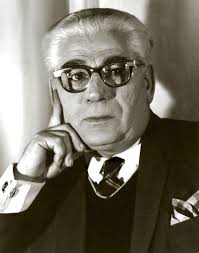
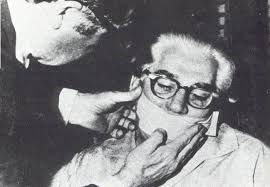








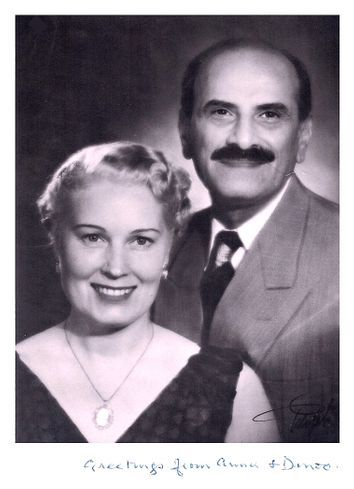

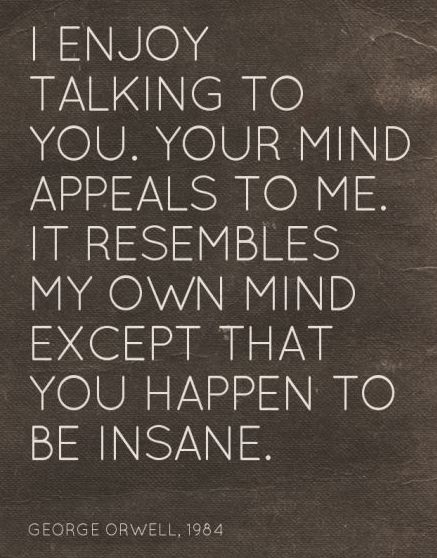

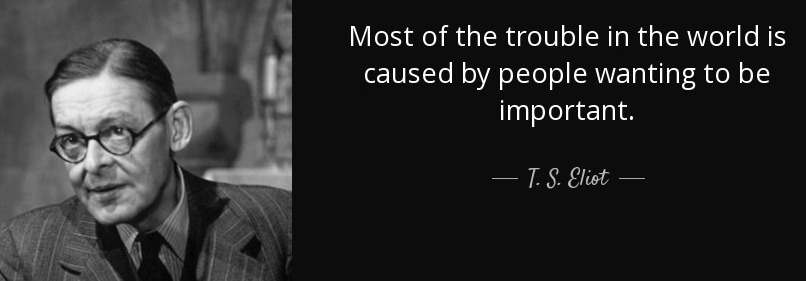

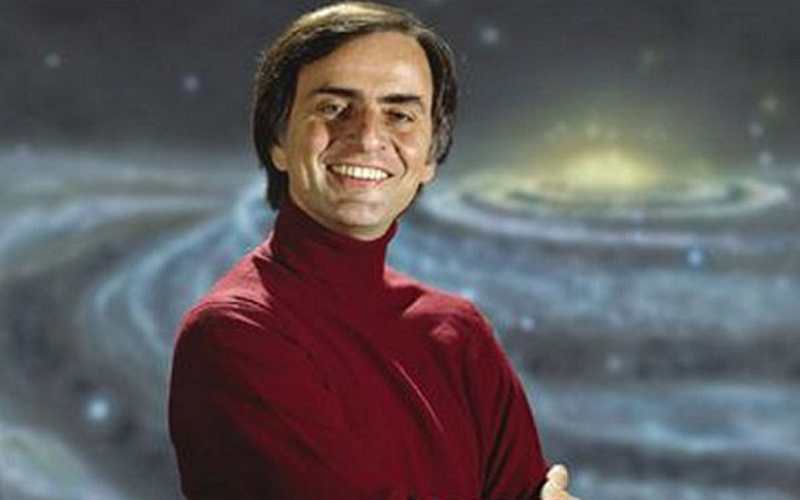

.jpg)
